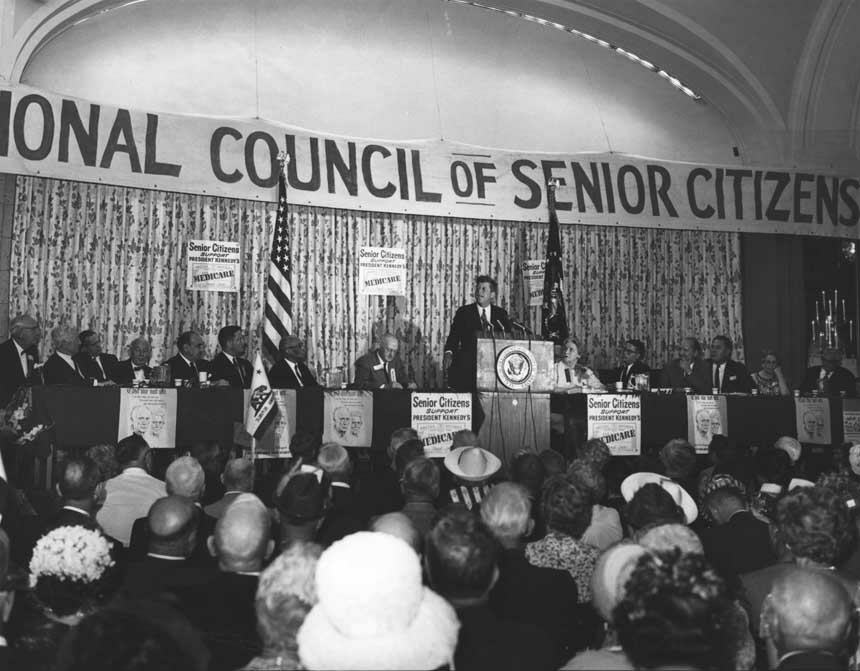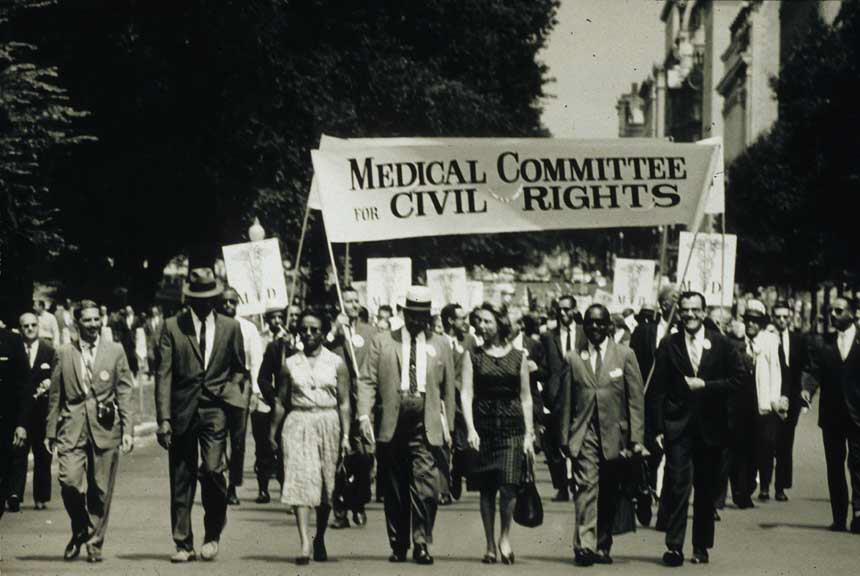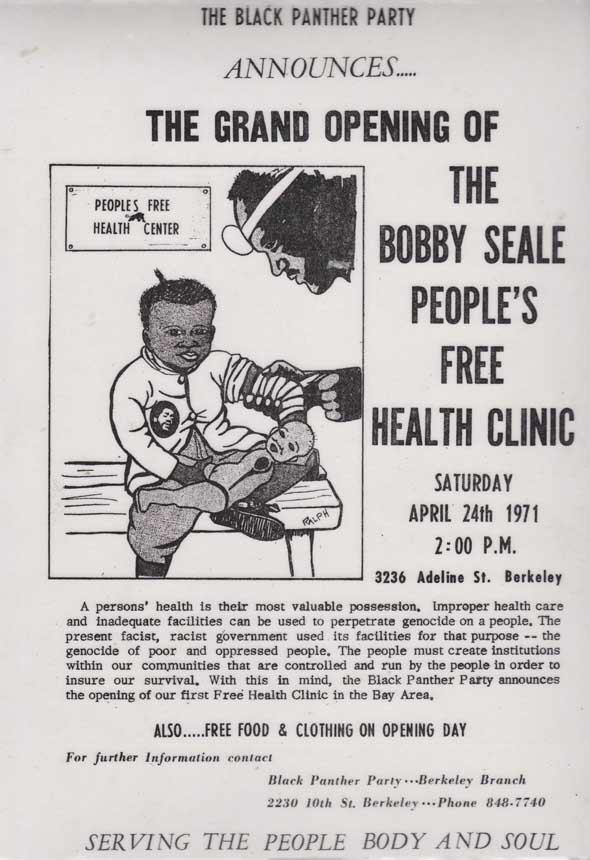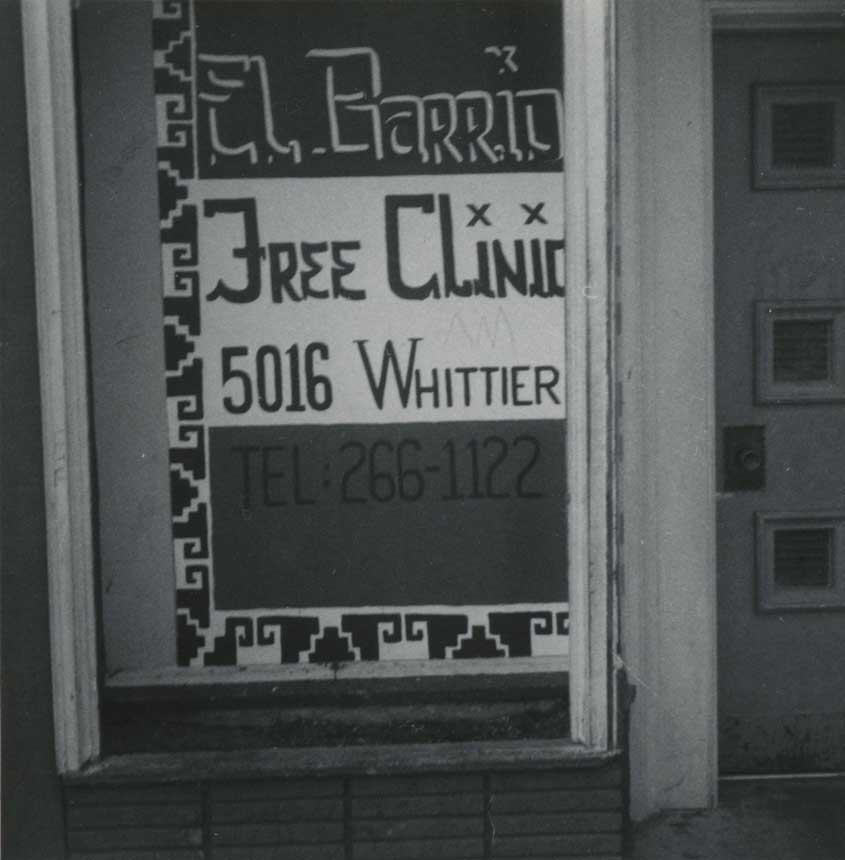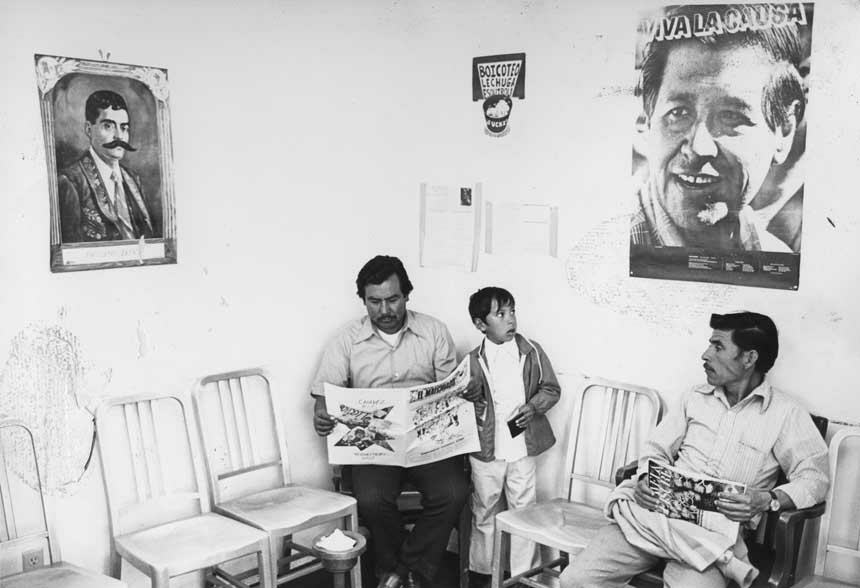Activists helped push for health programs and called attention to disparities in medical care.
In the 1960s, civil rights activists and senior citizens advocated for Medicare and Medicaid, the first national health programs in the United States. Following the end of legal segregation by race, citizen groups began targeting continuing racial and economic inequalities in health. Radical social movements went even further in defining community-based health care as an essential component of their visions for a new society.
President Kennedy speaks to attendees of the National Convention of the National Council of Senior Citizens, 1963
Courtesy Abbie Rowe. White House Photographs. John F. Kennedy Presidential Library and Museum, Boston
Senior citizen activists won the support of Presidents John F. Kennedy and Lyndon B. Johnson in their push for Medicare, the national health insurance program for retired Americans, which Congress passed in 1965.
-
Medical Committee for Civil Rights participates in the March on Washington for Jobs and Freedom, 1963
Courtesy National Library of Medicine
Many physicians, nurses, and medical students worked in the civil rights movement. They marched against segregation, treated people injured in protests, and helped set up community clinics in both the North and the South.
Bobby Seale People’s Free Health Clinic poster, Berkeley, CA, 1971
Courtesy Billy Jennings
The Black Panther Party established free clinics in cities around the country, emphasizing public health, preventive medicine, and self-determination for poor and minority communities.
A sign promotes the free clinic “El Barrio,” East Los Angeles, CA, ca. 1969
Courtesy The California State University, Los Angeles, John F. Kennedy Memorial Library, Gloria Arellanes Papers
The Brown Berets, a Chicano rights organization, opened a free health clinic in East Los Angeles in 1969. The clinic provided medical, social, and psychological services to Mexican-Americans and other community residents.
Patients in the waiting room of the National Farm Workers Service Center’s health clinic, decorated with a poster of union leader Cesar Chavez, Calexico, CA, 1973
Courtesy Walter P. Reuther Library, Archives of Labor and Urban Affairs, Wayne State University, Photographer Glenn Pearcy
Farm workers’ organizations saw health care as central to peoples’ struggle for dignity and better conditions for both work and home life. Affiliates of the United Farm Workers of America opened numerous clinics for migrant agricultural workers and their families in the 1960s and 1970s.



